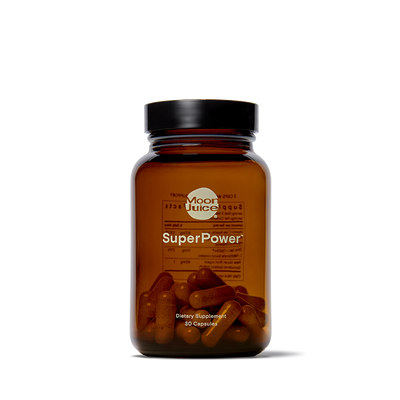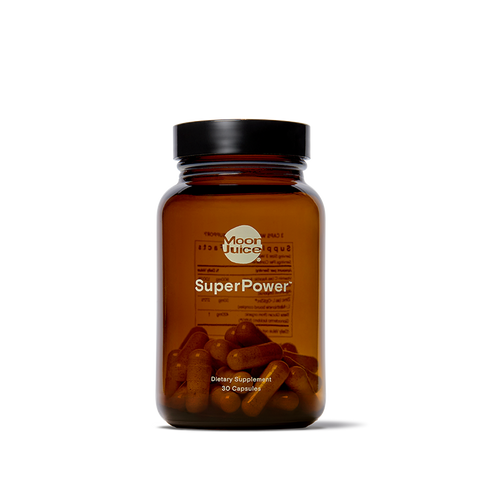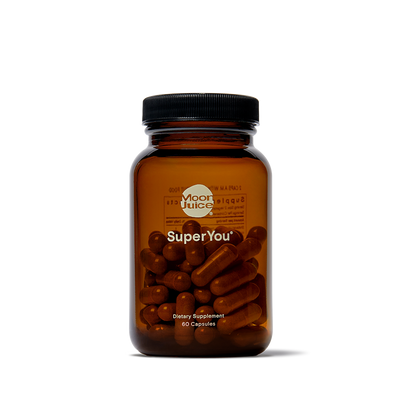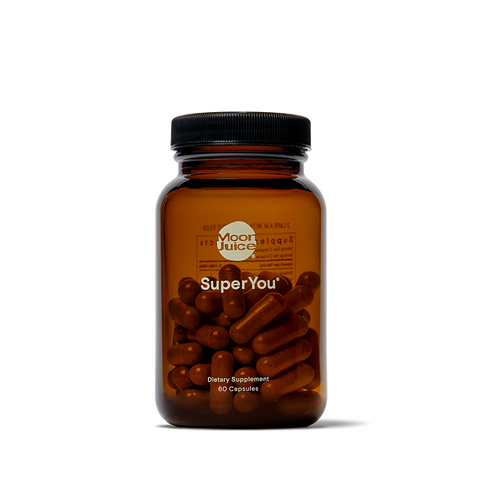From collagen to inflammation to allergic response, Vitamin C has an impact on so many areas of our health — including the immune system. An essential micronutrient and potent antioxidant, Vitamin C supports our body’s first line of defense. Whether you want to get proactive about your immune health or aren’t sure which form of Vitamin C to supplement, here’s how this micronutrient can support you on a daily basis.
How does Vitamin C help immune system function?
Whether you’ve reached for a glass of orange juice or chugged a Vitamin C packet when you’re sick, you likely recognize that it’s an important vitamin for immune support and health. If you want to know exactly how to boost your immune system with the help of Vitamin C, we will break down the science here.
The immune system is a sophisticated network of organs, cells, proteins, and reactions in your body, and Vitamin C plays an important role in supporting cellular functions of both innate and acquired immune defenses. One way it does that is by helping produce lymphocytes and phagocytes, or white blood cells that fend off infection. As a necessary component of skin health, Vitamin C also supports your first line of defense.
Vitamin C also plays an essential role in the maintenance of the body’s collagen network. As a structural protein, collagen helps make up our framework of cells and tissues. It’s important for immune function in that it strengthens the gut lining and digestive system, where 70-80% of your immune cells live.
Vitamin C’s relationship to collagen extends to the support of wound healing. People who have a Vitamin C deficiency might notice wounds being slower to heal, since their bodies are less ready to produce the collagen that plays a critical role in all phases of wound repair, from platelet activation to tissue remodeling.
What are the other benefits of Vitamin C?
In addition to supporting immunity, Vitamin C plays a role in many important functions in the body. As a potent antioxidant, it helps neutralize free radicals, or unstable molecules that can accumulate from stress, toxins, alcohol, sugar, and lack of sleep. Free radicals have an uneven number of electrons, which causes them to be highly reactive with other molecules and sets off long-chain chemical reactions in your body, aka oxidation.
Antioxidants like Vitamin C inhibit oxidation. So when there are more free radicals present in your system than the antioxidants needed to neutralize them, this causes cell damage and accelerated aging of your tissues. When you have enough antioxidants, you’re able to protect your cells, proteins, and DNA from this oxidative stress and inflammation.
As well as its antioxidant powers, Vitamin C has been shown to support:
- Skin Health: Your body needs Vitamin C to produce the collagen that gives healthy skin its structure and look, helping prevent fine lines and wrinkles and hyperpigmentation. Because we start to lose collagen in our twenties, it’s wise to protect your innate supply with Vitamin C supplementation in both topical and oral form.
- Blood pressure: Vitamin C helps widen your blood vessels and supports nitric oxide production. This can help prevent hypertension and heart conditions. Studies have shown that Vitamin C can lower blood pressure in both those with normal and high blood pressure.
- Cartilage health: Vitamin C from food can help people who have osteoarthritis prevent the loss of cartilage.
- Iron usage: It helps your body’s Iron absorption. People who have Iron deficiency anemia are often prescribed Vitamin C.
- Allergen response: Vitamin C can help you minimize your allergy symptoms. According to a 2018 study, 71 people with either skin or respiratory allergies received Vitamin C intravenously at varying doses. It was concluded that taking a high dose of the micronutrient may help reduce symptoms. They also found evidence suggesting that low Vitamin C levels were common in those with allergies.
- Neurotransmitter synthesis: One of the most established roles of Vitamin C is its ability to biosynthesize neurotransmitters like dopamine, norepinephrine, and epinephrine. Vitamin C is needed to convert the amino acid tryptophan into serotonin in our brains. These neurotransmitters carry messages between nerve cells and your brain, helping to elevate mood and carry out a number of functions. There is a relationship between stress and immune system function, and taking Vitamin C can help.
How can I increase my Vitamin C intake levels?
Vitamin C is an exogenous vitamin. That means our bodies can’t produce it, so it needs to come from the foods we eat every day or the supplements we take.
And because C is water-soluble, our bodies don’t store it, either, which means it’s all the more important to get this essential vitamin daily.
You can get Vitamin C through the best immune-boosting foods, like citrus fruits, kiwi, papaya, cantaloupe, mango, pineapple, green or red bell peppers, berries, cauliflower, spinach, broccoli, potatoes, green peas, tomatoes, and brussels sprouts. It’s important to note that cooking can decrease the amount of Vitamin C in food, so it’s best to eat them raw if you’re looking to up your intake.
If you have trouble getting enough Vitamin C through your diet or tracking how much you consume (most adult women need 75 mg per day, while most adult men need 90 mg per day), consider Vitamin C supplementation on a daily basis.
Sign Up, Nerd Out
Get wellness tips, education, and recipes
delivered straight to your inbox.
Get wellness tips, education,
and recipes delivered
straight to your inbox.
Boosting your Vitamin C levels with supplements
Supplemental Vitamin C is an easy way to ensure you’re getting an adequate daily dose. But not all C supplements are created equal, with the same clinically proven, 3rd-party tested potency and traceability. It's important to look out for one that's bioavailable, so you don't pee it out before your body has the chance to absorb it.
SuperPower® is your daily immune support with Liposomal Vitamin C and 3 other immune essentials. Liposomes are protective bubbles that help your body absorb nutrients. Moon Juice’s Vitamin C in SuperPower® is liposomal but dehydrated into a powder, so you can take it in a capsule. It’s able to make it past harsh stomach acids, travel into your bloodstream, and get delivered directly into your cells at high doses.
Take 1 cap of SuperPower® every day for maintenance. At the onset of feeling like you’re going down, take 3 caps every day until you have a full 24 hours of feeling back on your feet.
Does taking Vitamin C supplements support a healthy immune system?
Supplemental Vitamin C is one of the major ways you can support your immune system both during times of health or times of imbalance. You need adequate levels of C for proper immune function, but because it’s often difficult to track how much is on your plate starting with a Vitamin C supplement each day and building with a colorful, whole foods diet is the best way to make sure you’re covered.
Sources
- National Library of Medicine, Vitamin C and Immune Function https://www.ncbi.nlm.nih.gov/pmc/articles/PMC5707683/
- National Institutes of Health, Vitamin C: A Fact Sheet for Health Professionals https://ods.od.nih.gov/factsheets/VitaminC-HealthProfessional/
- Medical News Today, Vitamin C: Why We Need It https://www.medicalnewstoday.com/articles/219352#why-we-need-it
- Harvard T.H. Chan School of Public Health: Vitamin C https://www.hsph.harvard.edu/nutritionsource/vitamin-c/
- National Library of Medicine, Effect of vitamin C and its derivatives on collagen synthesis and cross-linking by normal human fibroblasts https://pubmed.ncbi.nlm.nih.gov/18505499/#:~:text=Vitamin%20C%20(VitC)%20plays%20a,key%20enzymes%20in%20collagen%20biosynthesis.
- National Library of Medicine, Collagen in Wound Healing https://www.ncbi.nlm.nih.gov/pmc/articles/PMC8151502/
















